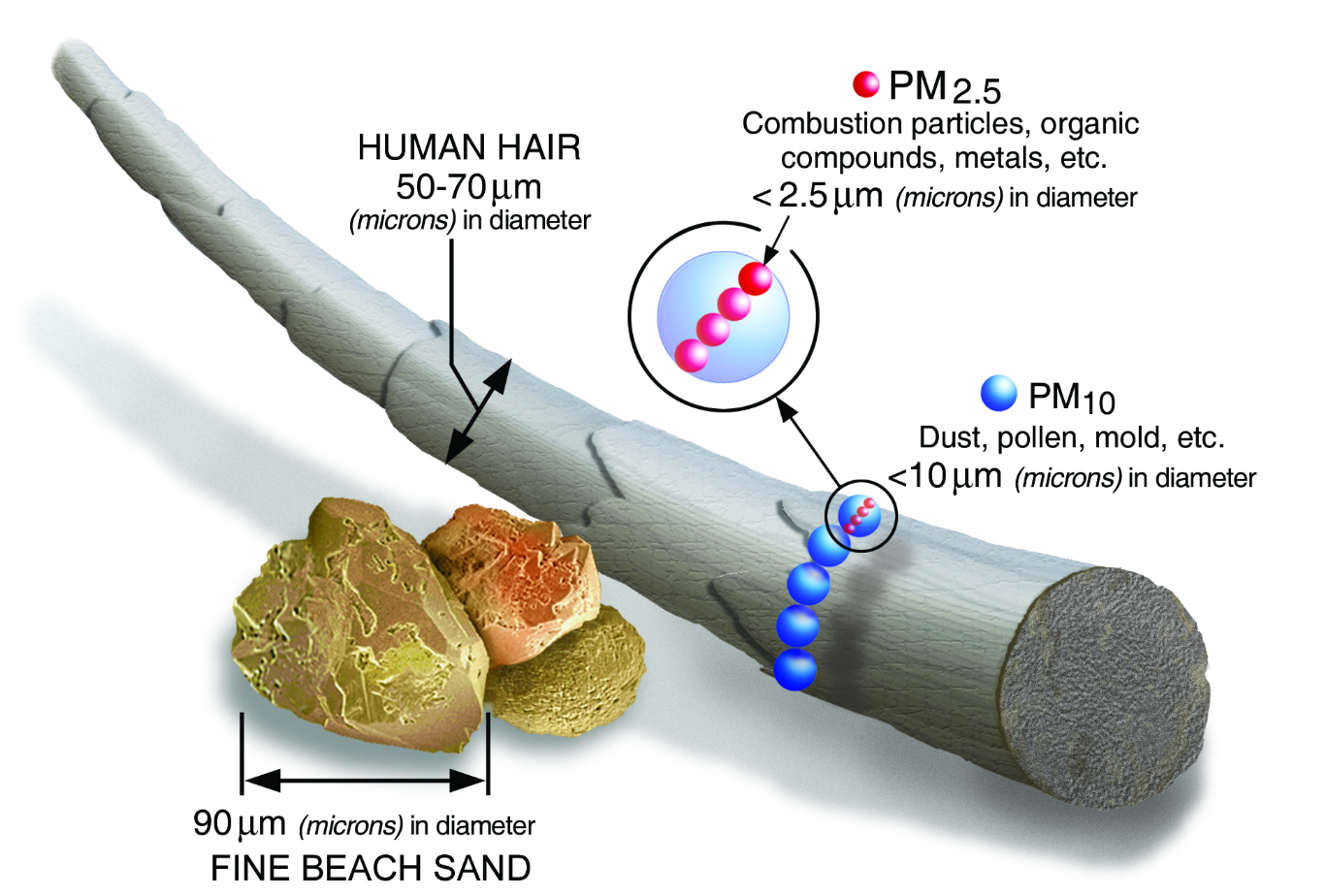Particulate Matter (PM10) refers to inhalable coarse particles with a diameter of 10 micrometers or smaller. These particles can originate from various sources, including vehicle exhaust, industrial emissions, construction activities, and natural sources such as dust storms. The impact of PM10 on human health has been a subject of significant research, and numerous studies have highlighted the adverse effects of exposure to elevated PM10 levels.
- Respiratory Issues:
- PM10 can penetrate deep into the respiratory system, reaching the lungs and even entering the bloodstream.
- Prolonged exposure to high levels of PM10 is associated with respiratory problems, including aggravated asthma, bronchitis, and reduced lung function.
- Individuals with pre-existing respiratory conditions, such as chronic obstructive pulmonary disease (COPD), may experience exacerbated symptoms due to PM10 exposure.
- Cardiovascular Effects:
- PM10 has been linked to cardiovascular diseases, including heart attacks and strokes.
- Inhaling fine particles can lead to inflammation and oxidative stress, contributing to the development and progression of cardiovascular issues.
- Increased Mortality Rates:
- Long-term exposure to elevated PM10 levels has been correlated with an increased risk of premature death.
- The World Health Organization (WHO) estimates that air pollution, including exposure to particulate matter, contributes to millions of premature deaths worldwide each year.
- Cancer Risk:
- Some studies suggest a potential link between exposure to PM10 and an increased risk of certain cancers, particularly lung cancer.
- Carcinogenic substances, such as polycyclic aromatic hydrocarbons (PAHs), can adhere to PM10 particles and be inhaled into the lungs.
- Impact on Vulnerable Populations:
- Children, the elderly, and individuals with pre-existing health conditions are more susceptible to the adverse effects of PM10.
- Children exposed to high levels of particulate matter may experience developmental issues, and the elderly may face exacerbated health problems.
- Inflammatory Responses:
- PM10 can induce inflammatory responses in the respiratory system, leading to the release of pro-inflammatory substances.
- Chronic inflammation is associated with various diseases, and sustained exposure to PM10 can contribute to a chronic inflammatory state in the body.
Addressing the Issue:
Recognizing the health risks associated with PM10, regulatory bodies and health organizations worldwide have implemented measures to monitor air quality and establish guidelines to limit particulate matter concentrations. Efforts to reduce emissions from vehicles, industries, and other pollution sources aim to mitigate the impact of PM10 on public health.
Dr Peter Bablis, Integrated Medical expert of Knightsbridge, emphasizes the importance of environmental stewardship: “Understanding the link between PM10 and disease underscores the significance of proactive measures to reduce air pollution. Sustainable practices and stringent environmental regulations are vital for safeguarding public health and the well-being of communities.”









